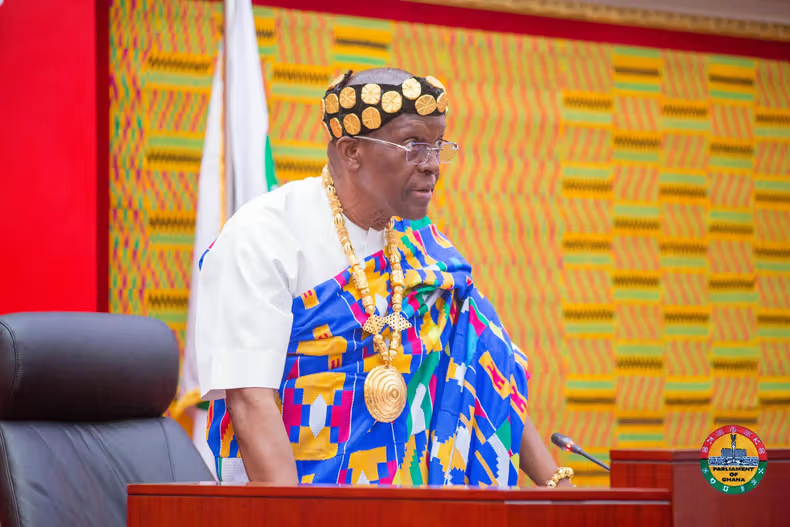Member of Parliament (MPs) from the New Patriotic Party (NPP) have vacated the parliamentary chamber while awaiting a definitive directive from the S
Member of Parliament (MPs) from the New Patriotic Party (NPP) have vacated the parliamentary chamber while awaiting a definitive directive from the Speaker, Alban Bagbin, regarding seat occupancy and the status of the parliamentary majority.
This peaceful walkout followed an escalating standoff between the NPP majority caucus and the opposition National Democratic Congress (NDC), who now assert control over the majority side of Parliament after the Speaker’s contentious declaration that four parliamentary seats had been vacated.

On October 17, Speaker Alban Bagbin declared the parliamentary seats for Fomena, Amenfi Central, Suhum, and Agona West vacant, referencing Article 97(1)(g) of the 1992 Constitution, which addresses MPs who announce their intentions to contest as independents or under a different party banner.
This ruling followed Minority Leader Cassiel Ato Forson’s inquiry regarding the ongoing occupancy of these seats. The declaration notably altered the balance of power in Parliament, with the National Democratic Congress (NDC) claiming a 136-seat majority in contrast to the New Patriotic Party’s (NPP) 135 seats.
However, after Majority Leader Alexander Afenyo-Markin filed a lawsuit, the Supreme Court intervened on October 18 to temporarily halt the Speaker’s decision and permit the impacted MPs to continue their work until the matter was settled.
As Parliament resumed on October 22, tensions escalated dramatically. Members of the National Democratic Congress (NDC), under the leadership of Minority Leader Dr. Cassiel Ato Forson, took their seats on the majority side of the chamber, asserting their claim to be the new majority. In contrast, the New Patriotic Party (NPP) MPs rejected this claim, arguing that the Supreme Court’s intervention granted them the right to retain their positions on the majority side until a definitive legal ruling is issued.
Amid this standoff, Majority Chief Whip Frank Annoh-Dompreh issued a strong warning, affirming that the NPP caucus would take all necessary measures to protect their standing in the chamber. He also refuted claims from Minority Chief Whip Governs Kwame Agbodza that he had been “smuggled” into the chamber before the official opening, labeling the accusations as unfounded.
Displaying their frustration, NPP MPs, led by their leadership, opted to walk out of the chamber, demanding explicit guidance from Speaker Alban Bagbin regarding which party should rightfully occupy the majority side. Their exit allowed the NDC MPs to remain in the majority section, further escalating the existing tensions between the two parties.
The future of the situation now rests on Speaker Bagbin’s next decision. He has been at the heart of the controversy, with his initial announcement regarding the vacant seats triggering the current parliamentary deadlock.
The NPP caucus is keenly awaiting his definitive ruling, which could significantly impact the legislative process and the balance of power ahead of the 2024 elections. NPP MPs contend that the Supreme Court’s ruling should permit them to maintain their occupancy of the majority side, while the NDC argues that the Speaker’s declaration remains valid until the matter is fully adjudicated in court.
The ongoing parliamentary standoff has captured significant public interest, with many Ghanaians closely monitoring developments. The NPP MPs’ walkout, combined with the legal dispute over the vacant seats, has raised the stakes in the lead-up to the upcoming general elections.
Political analysts have cautioned that a prolonged resolution could deepen divisions within the House, disrupt essential legislative processes, and escalate tensions between the two major parties. Currently, all attention is focused on Speaker Alban Bagbin as he prepares to deliver his ruling on the issue.
Until then, the NPP MPs have firmly stated that they will not return to the chamber unless a resolution is achieved, leaving the House in a precarious state of uncertainty.
